
Patients with chronic lymphocytic leukemia and small lymphocytic leukemia can now receive treatment with zanubrutinib following its approval by the FDA.

Your AI-Trained Oncology Knowledge Connection!


Ryan McDonald, Associate Editorial Director for CancerNetwork® and the journal ONCOLOGY, has been with the team since November 2022 and has been with MJH Life Sciences since February 2020.
He is a graduate of Temple University, where he studied journalism and minored in political science and history. He considers himself a craft beer snob and would like to open a brewery in the future. He always says he'll try any brewery or restaurant twice.
During his spare time, he can be found rooting for all major Philadelphia sports teams (he was heartbroken to see the Union lose the 2022 MLS Cup and the Phillies lose the 2022 World Series). Follow Ryan on Twitter @RMcDonald11 or email him at rmcdonald@mjhlifesciences.com.

Patients with chronic lymphocytic leukemia and small lymphocytic leukemia can now receive treatment with zanubrutinib following its approval by the FDA.

The FDA’s approval of new indications and dosing regimens of capecitabine across several cancer types, including breast cancer and colon cancer, marks the first drug to receive an update under the agency’s Project Renewal program.

Patients with previously untreated Waldenström Macroglobulinemia—a rare form of blood cancer—derived fast and durable responses after receiving treatment with ibrutinib plus venetoclax, according to findings from a prospective phase 2 trial presented at 2022 ASH Annual Meeting.

The findings, according to the lead study author, demonstrate that treatment with forimtamig delivered intravenously or subcutaneously may elicit long-term responses in patients with relapsed or refractory multiple myeloma.

The use of a fixed-duration regimen of glofitamab several days after pretreatment with obinutuzumab was associated with high complete responses among a group of heavily pretreated patients with relapsed or refractory mantle cell lymphoma.

The FDA has granted mirvetuximab soravtansine-gynx an accelerated approval for the treatment of patients with folate receptor-α-positive platinum-resistant ovarian cancer based on results from the phase 3 SORAYA study.

At ESMO 2022, peripheral blood samples taken from patients with advanced or metastatic urothelial carcinoma treated on the phase 3 JAVELIN Bladder 100 trial showed there may be a potential to predict disease response to avelumab.

Patients with previously untreated, locally advanced stage 3 non–small cell lung cancer continue to derive a benefit from pembrolizumab with concurrent chemoradiation followed by additional pembrolizumab after more than 2 years of follow-up.

Results of a matching-adjusted indirect comparison study showed that patients with HR-positive/HER2–negative advanced breast cancer treated with ribociclib and an aromatase inhibitor were more likely to have better symptom-related quality of life than patients who received abemaciclib and an aromatase inhibitor.

Preliminary findings of data from the phase 1/2 LUPER study demonstrate that treatment with lurbinectedin combined with pembrolizumab elicits promising efficacy in patients with metastatic small-cell lung cancer that has failed to respond to chemotherapy.

At approximately 5 years of follow-up, findings from the phase 3 ELEVATE-TN study show that treatment outcomes are more favorable with acalabrutinib with or without obinutuzumab compared with obinutuzumab and chlorambucil in treatment-naïve chronic lymphocytic leukemia.

The findings of this retrospective study of more than 25,000 patients with cancer newly diagnosed during the COVID-19 pandemic highlight a need to reduce the inequities in telemedicine use for cancer care, according to the study’s lead author.

Pembrolizumab, binimetinib , and bevacizumab led to deep and durable responses for patients with microsatellite-stable, treatment-refractory metastatic colorectal cancer.
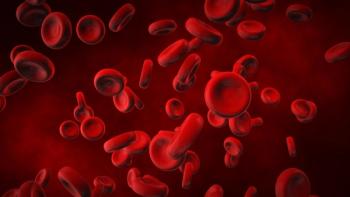
Patients with relapsed/refractory t(11;14) multiple myeloma appeared to benefit from treatment with venetoclax at a dose of 400 mg or 800 mg plus daratumumab/dexamethasone.
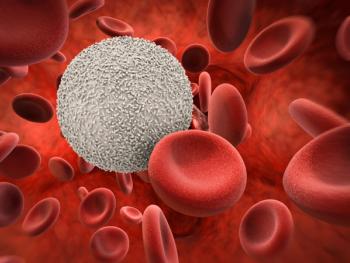
The combination of MRD-guided ibrutinib and venetoclax demonstrated feasibility for treating patients with relapsed/refractory chronic lymphocytic leukemia.

Black women with breast cancer had a 3.5-fold higher rate of lymphedema over 24 months compared with White women.

Certain patients with metastatic castration-resistant prostate cancer may have favorable outcomes after receiving nivolumab plus rucaparib.

Data from EHA 2021 showed that zanubrutinib was associated with better outcomes over ibrutinib for patients with relapsed/refractory chronic lymphocytic leukemia/small lymphocytic lymphoma

Compared to upfront autologous stem cell transplantation for newly diagnosed, transplant-eligible patients with multiple myeloma, carfilzomib consolidation with cyclophosphamide and dexamethasone produced noninferior results.

The combination of mosunetuzumab plus polatuzumab vedotin showed positive efficacy and safety data in a phase 1b study of patients with B-cell non-Hodgkin lymphoma.
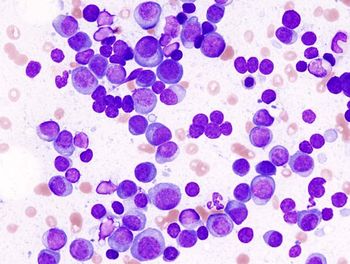
High rates of durable complete responses are reported at the 2021 ASCO Annual Meeting with ciltacabtagene autoleucel in patients with relapsed or refractory multiple myeloma.

Better progression-free survival, as well as improved responses, were seen when lenvatinib was combined with either pembrolizumab or everolimus versus standard-of-care sunitinib in the treatment of patients with advanced renal cell carcinoma receiving therapy in the frontline setting.

Encouraging survival end points are observed with BMS-986012 plus nivolumab in immune checkpoint inhibitor–naïve SCLC, according to data presented at the 2020 World Conference on Lung Cancer.

Statistically significant improvements in median progression-free survival were observed in patients with HER2- amplified disease who were treated with pembrolizumab in combination with trastuzumab and cisplatin plus capecitabine compared with those without HER2-amplified disease.

The combination of oral paclitaxel and encequidar has the potential to be an effective treatment for patients with radiation-associated breast angiosarcoma.

The study found that 53.2% of patients who reported at least 1 substantial symptom while receiving radiotherapy experienced under-recognition of at least 1 of 4 symptoms by their physician.

Following a fixed-treatment duration of ibrutinib combined with venetoclax achieved similar 1-year disease-free survival in patients with previously untreated chronic lymphocytic leukemia/small lymphocytic lymphoma.

Patients with triple-negative breast cancer experienced improved pathologic complete responses with the addition of neoadjuvant atezolizumab to chemotherapy.
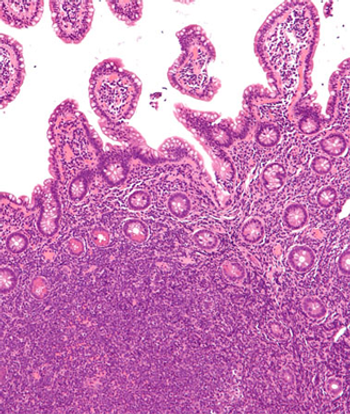
When compared to currently approved therapies, KTE-X19 demonstrated comparable pharmacologic and clinical outcomes in patients with high-risk MCL characteristics versus lower-risk characteristics defined by tumor protein TP53 mutation or high Ki-67 proliferation index.

Disease progression and treatment with hydroxychloroquine and azithromycin were associated with increased all-cause 30-day mortality in patients with cancer compared to patients either in remission or with no evidence of disease, according to data presented during a 2020 ASCO Virtual Scientific Program press briefing.

Published: December 10th 2020 | Updated:

Published: May 26th 2022 | Updated:
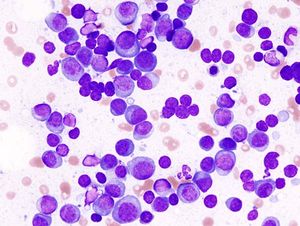
Published: June 4th 2021 | Updated:

Published: June 11th 2021 | Updated:

Published: December 11th 2022 | Updated:

Published: September 20th 2020 | Updated: